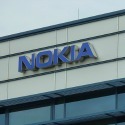
Also in today's EMEA regional roundup: Nokia focuses on private mobile networks; exec changes at Telia; ARM sales up under SoftBank; Sparkle wins Czech research deal; Proximus taps Neustar for analytics.
Nokia Corp. (NYSE: NOK) is planning to introduce its so-called 4.9G technology by the end of the year, thanks in part to the launch of its AirScale massive MIMO Adaptive Antenna. The forthcoming technology will rely heavily on carrier aggregation, using a technique called beamforming to keep radio signals focused where they are needed. Nokia says 4.9G will increase data speeds to "several gigabits per second." At this month's Mobile World Congress, Nokia says it will give a "world-first" demonstration of Cloud Single RAN running virtualized 2G, 3G, 4G and 5G radios and 2G and 3G network controllers over commercial AirScale and AirFrame platforms. (See Nokia Boasts 4.5G Momentum With 110 Deals.)
Elsewhere in Nokialand, the vendor is turning its attention to private mobile networks for vertical industries, using what it calls multi-access edge computing to provide an overlay approach to a multi-operator, multi-access RAN network. Nokia has signed an agreement with WiFi firm Boingo Wireless Inc. to trial the technology.
Telia Company's Staffan Åkesson, the head of service assurance and operations, is now acting head of network and IT infrastructure following the departure of Mats Svärdh, who was revealed to have quit his role as vice president of networks and IT infrastructure for the Swedish telco in November. The circumstances surrounding his departure remain unclear, with a Telia Company spokesperson indicating only that he left "following dialogue about the future" and saying the company has "no idea" about his current whereabouts. A search for a permanent replacement is said to be underway. Svärdh's move could have been linked to broader restructuring efforts at Telia, which last year merged its technical and commercial divisions and announced plans for an new organizational setup focused on operations in the Nordic and Baltic markets. The operator is selling assets in Eurasia amid economic difficulties and following allegations of corruption. (See Networks, IT Guru Svärdh No Longer at Telia and TeliaSonera to Quit Eurasia, Focus on Europe.)
ARM Ltd. , the UK-based chip designer that was sold to SoftBank Corp. last year for $32 billion, has revealed sales up 40% sequentially to £508m in its first quarter under the control of the Japanese giant, the Daily Telegraph reports. The revenue figure was helped by the increase in the fall in value of sterling -- in dollar terms, sales grew by 25%. (See SoftBank Muscles In on ARM in $32B Deal.)
Telecom Italia Sparkle , the international services arm of Telecom Italia (TIM) , has been chosen as the main global IP transit service provider to CESNET, the Czech research network. Sparkle teamed up with local ISP Prozeta to land the contract.
Belgium's Proximus has chosen US analytics firm Neustar Inc. (NYSE: NSR) to help make its marketing campaigns more cost-effective. Proximus will use Neustar's MarketShare DecisionCloud service to get a more accurate picture of its sales and marketing investments.
T-Systems International GmbH , the IT services arm of Deutsche Telekom AG (NYSE: DT), has launched what it calls a "cloud triad" for software developers that combines T-Systems' own development platform, AppAgile, with Red Hat Inc. (NYSE: RHT)'s OpenShift Container Platform and Microsoft Corp. (Nasdaq: MSFT)'s Azure. T-Systems is keen to stress that, under this arrangement, Microsoft will not be able access to customer data without the permission of data trustees or customers.
Russian operator Mobile TeleSystems OJSC (MTS) (NYSE: MBT) has launched its own "mobile wallet" payment system, which combines customers' payment tools -- electronic wallet, bank cards and mobile account balances -- onto one platform. The MTS Money Wallet will be available via iOS and Android apps or through its own website.
— Paul Rainford, Assistant Editor, Europe, Light Reading
About the Author(s)
You May Also Like



.jpg?width=300&auto=webp&quality=80&disable=upscale)








